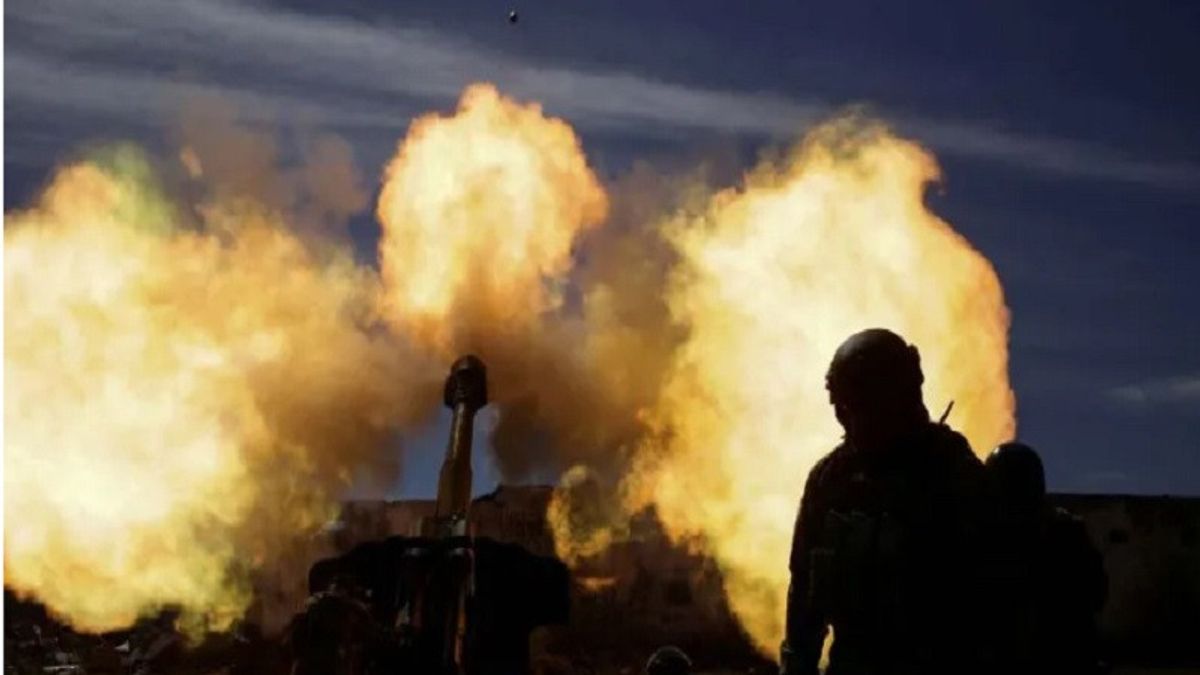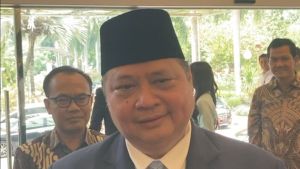JAKARTA - Food security has become a major issue in recent months, at least after Russia invaded Ukraine in February. The imposition of economic sanctions from various countries on Russia, which incidentally is a producing country, has had a major impact.
For example, the sanction of blocking a Russian bank from the Society for Worldwide Interbank Financial Telecommunication (SWIFT) system which in the end hampered Russian export transactions. In fact, Russia is the main wheat supplier with a production of 75.5 million tons based on Statista data. Russia is also a major producer of fertilizers containing potassium, phosphate, and nitrogen, which meet 13 percent of the world's needs.
As with its rivals, Ukraine is the world's largest wheat producer. As well as controlling the export of sunflower seed oil. Katadata said that Ukraine's sunflower seed oil exports reached US$4.71 billion in 2020, accounting for 54.4 percent of total world exports.
In addition to war, another factor that is no less important is the weather. Uncertain climate change, extreme rains, natural disasters have resulted in a decrease in production of many planted areas, and even crop failures.

This condition has occurred in several countries. Like wheat, based on data from the United States Department of Agriculture (USDA) reported by CNBC Indonesia, global wheat supply in 2022/2023 is expected to fall by 1.1 million tons to 1,051.7 million tons.
Production in the European Union (EU), Ukraine and Argentina may be lower. EU production fell by 2 million tonnes to 134.1 million tonnes due to continued dry weather affecting Spain, Italy and Germany. Ukrainian production also fell by 2 million tonnes to 19.5 million tonnes due to a reduction in harvested area.
Likewise rice. The outlook for global rice 2022/2023 for supply, consumption and stock is lower. Supply is projected to decrease by 1.3 million tonnes to 701.4 million tonnes due to lower initial stocks in India and Pakistan. Coupled with production cuts from the EU and the United States. EU production is expected to be at its lowest level since 1995/1996 due to severe droughts in Italy and Spain, the two largest rice-producing countries in the EU.
These indications have led many people to believe that the threat of a food crisis is imminent.
Jokowi Invites G7 and G20 Countries to Find Effective WaysIn the second session of the G7 Summit (Summit) in June 2022, President Joko Widodo called for the G7 and G20 countries to work hand in hand to overcome the food crisis that currently threatens the people, especially developing countries.
He asked the G7 countries to reintegrate Ukraine's wheat exports and Russia's exports of food and fertilizer commodities in global supply chains. The realization is by facilitating Ukrainian wheat exports so that they can run immediately and proactive communication to the world public that food and fertilizer commodities from Russia are not subject to sanctions.
“Especially for fertilizers, if we fail to handle it, then a rice crisis that affects two billion people, especially in developing countries can occur. The G7 and G20 have a big responsibility to overcome this food crisis," said President Jokowi, quoted from the official website of the Indonesian Ministry of Foreign Affairs.

Minister of Finance Sri Mulyani, in the third meeting of the G20 Finance Ministers and Central Bank Governors (FMCBG) in Nusa Dua Bali on Friday (15/7), re-emphasized the threat of acute food insecurity and invited G20 participants to find ways together to overcome them.
There needs to be policies from world countries to avoid rising food prices.
"This is an urgency, the food crisis must be addressed. Deployment of all available financing mechanisms is urgently needed to save lives, and strengthen financial and social stability," he explained as reported by kompas.com.
Indonesian IndependenceAgriculture observer Jaka Widada assesses that establishing food cooperation with other countries is very important to overcome the food crisis. However, it is also good to be balanced with efforts from within. Especially, related to efforts to deal with climate change, the development of adaptive varieties, and the issue of fertilizers.
Climate change is an important point because its impact can reduce production yields, and even fail to produce. Global warming leading to hotter temperatures and higher CO2 is not good for plants. Then, also related to water. If the community currently relies on groundwater as a source of irrigation, it is feared that in the next 10 years the water sources will run out and will cause permanent drought in a number of areas.
"Therefore, what PUPR has done in building a number of reservoirs is correct, although sometimes it is not appropriate because it is done without paying attention to the strategic position of the reservoir as a water reservoir," he said as quoted from ugm.ac.id.
Furthermore, it is related to the development of plant varieties that are adaptive to climate change. For example, the development of the Gama Gaora variety which requires less water.

"Current varieties for the productivity of 1 kg of rice still require around 2,500 liters of water, we hope it can be lowered below 100 or 50 liters per kilo of rice. So the hope is that they will be able to develop adaptive varieties to climate change," said Jaka Widada.
The same goes for fertilizers. It is necessary to develop cultivation of agricultural techniques that can save fertilizer. Or you can make your own fertilizer.
“Like the technologies distributed from Aceh to Riau, where people can make their own nitrogen fertilizers very cheaply and can replace 50 percent of the fertilizers that must be used. Unfortunately, Indonesian farmers in general have not paid attention to such things," he said.
The logic is simple, so that hunger does not occur there must be an increase in world food production. Moreover, the Food and Agriculture Organization of the United Nations (FAO) estimates that the world's population will reach 10 billion by 2050.
The English, Chinese, Japanese, Arabic, and French versions are automatically generated by the AI. So there may still be inaccuracies in translating, please always see Indonesian as our main language. (system supported by DigitalSiber.id)













